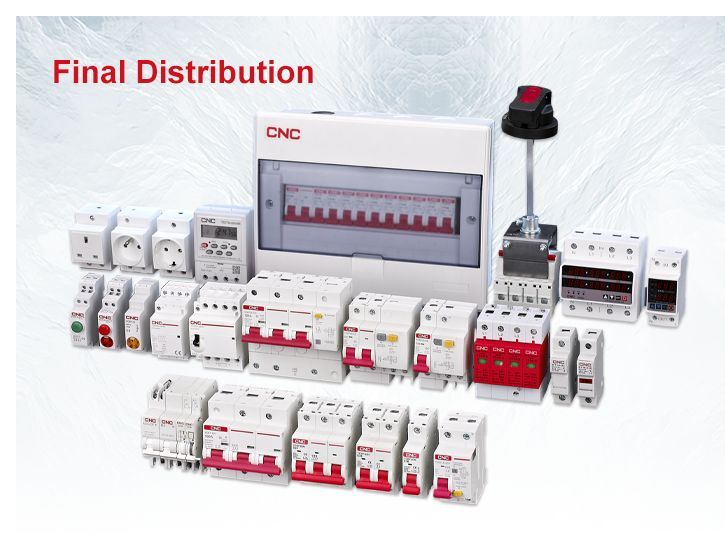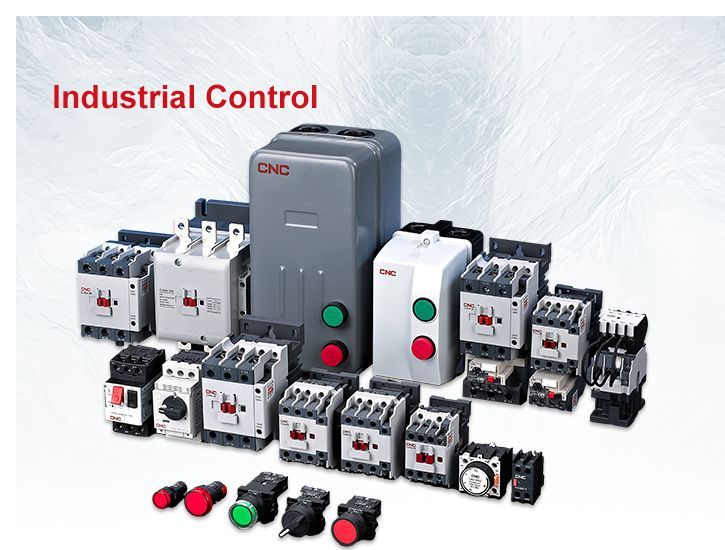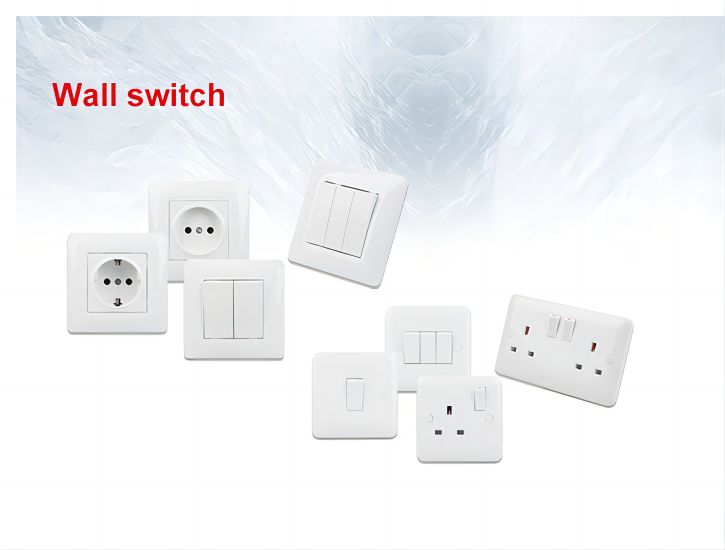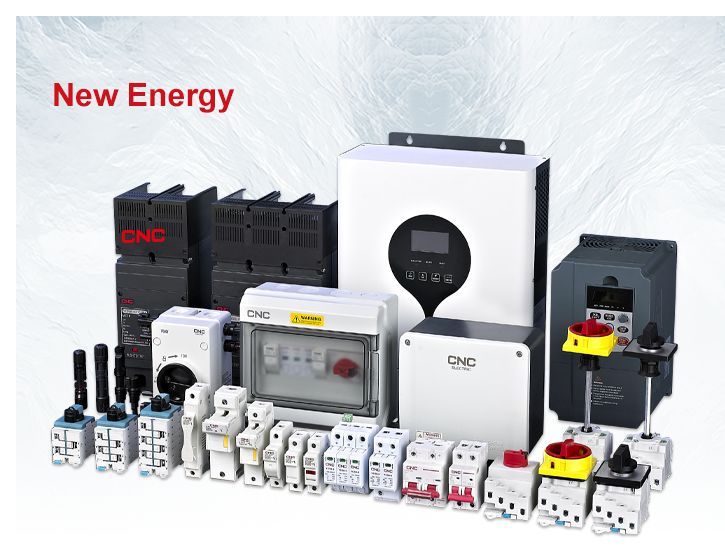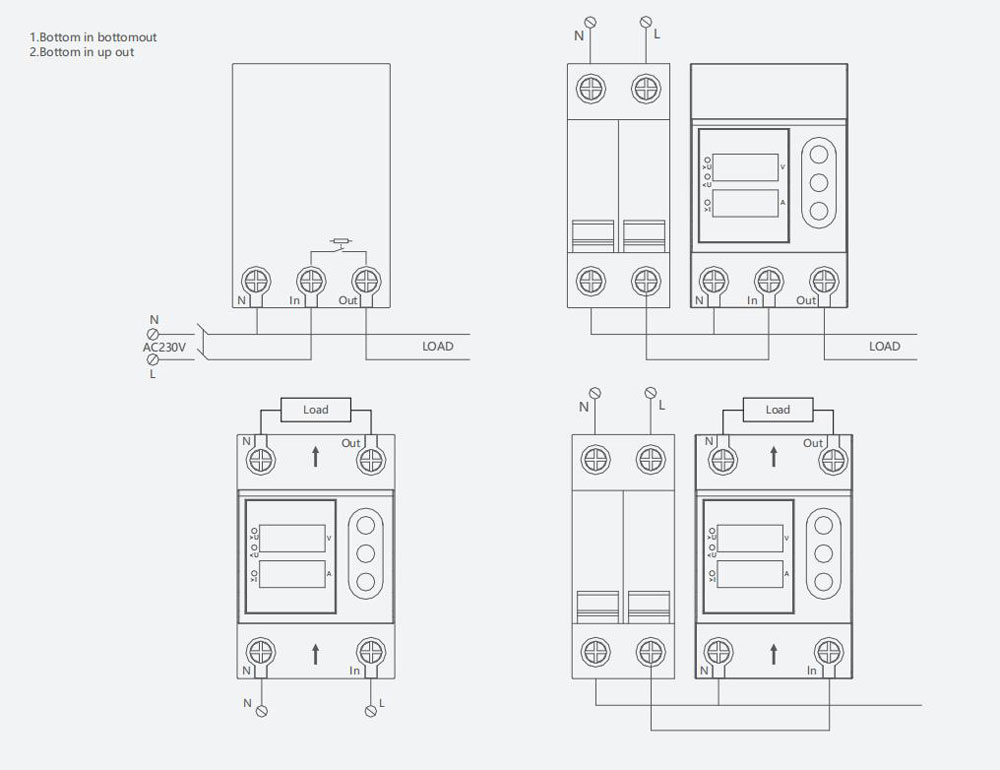
-
Product Overview
-
Product Details
-
Data Download
-
Related Products
YC9VA Voltage Protection Relay
General
YC9VA voltageand current display relay is a microprocessor-based voltagemonitoring devicefor single-phase AC networksto protectelectrical equipment from surge voltage.The deviceanalyzes the main voltage and displays its curent valueon a digitalindicator Load is switched by electromagnetic relay.The user canset the current voltage value and delaytime throughthe buttonThe value isstored in non-volatile memory.Aluminum wires and copper wires can be used forconnection.
Contact Us
Product Details
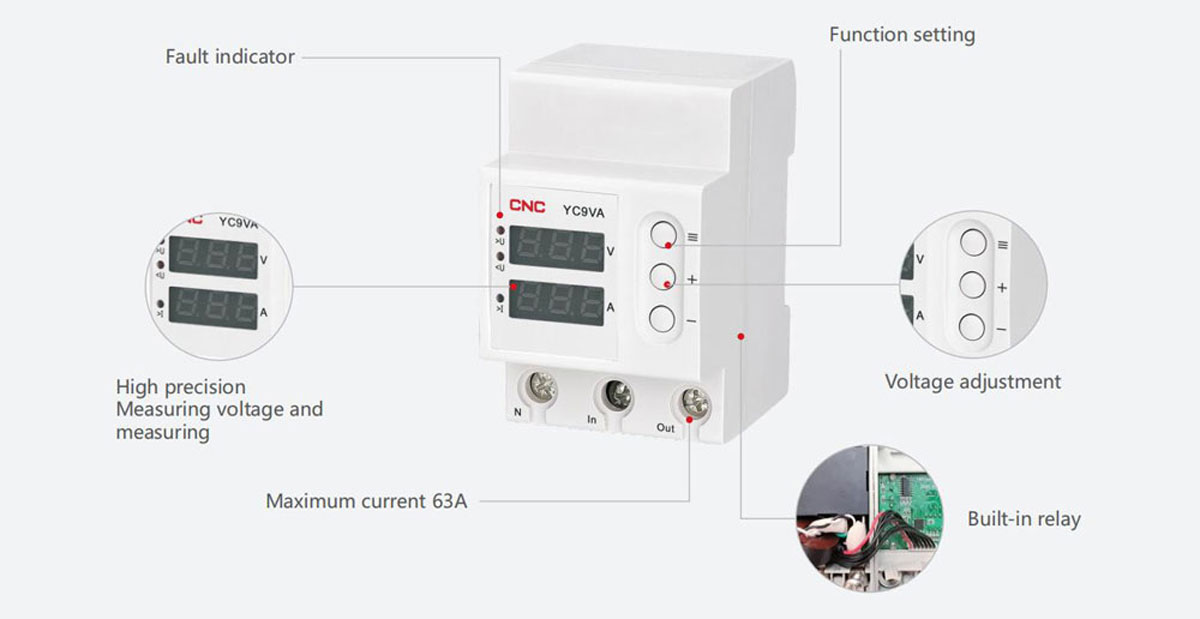

Appearance and Dimension of Keypad
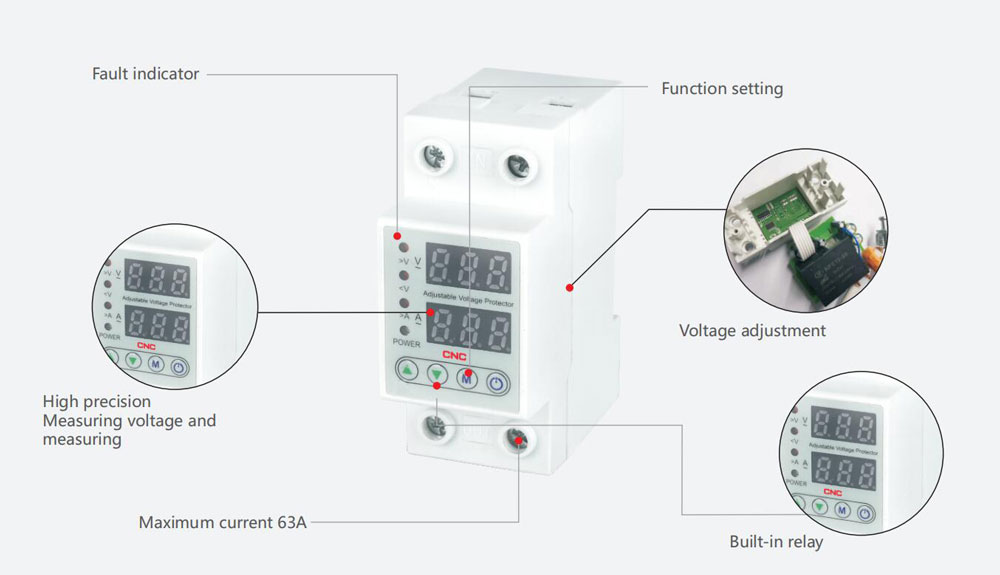
Description
YC9VA voltage and current display relay is a microprocessor-based voltage monitoring device for single-phase AC networks to protect electrical equipment from surge voltage. The device analyzes the main voltage and displays its current value on a digital indicator. Load is switched by electromagnetic relay. The user can set the current voltage value and delay time through the button.
The value is stored in non-volatile memory. Aluminum wires and copper wires can be used for connection.
Application
YC9VA voltage and current display relay used in administrative, industrial and residential buildings and has the function of protecting single-phase lines:
Undervoltage protection;
Overvoltage protection;
Working under voltmeter mode.
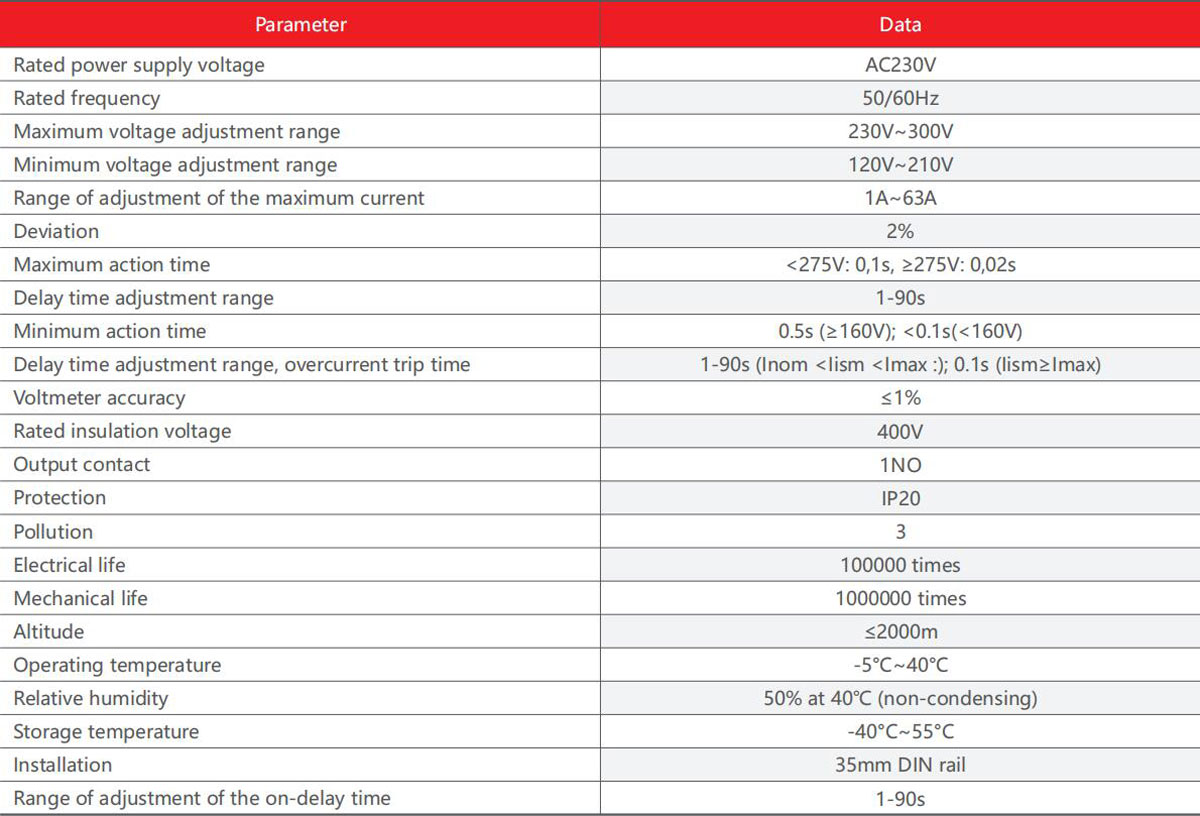
Operation and Installation Functions
When a voltage is applied to the device, the digital indicator will display the current value of the voltage in the network.
A flashing light indicates that there is no voltage on the output of the device. If the supply voltage is within the set range, after Ton (default is 30 seconds), the load will turn on and the indicator will stop flashing. If the voltage is not within the specified range, the load will not be connected to the line until the voltage returns to normal. Meantime, if the voltage is lower than the set lower limit during the restart, the error indicator will flash. If the voltage is higher than the set upper limit, the error indicator will remain on.
1. Install and secure the relay.
2. Connect the wires to the relay according to the schematic.
3. Set the desired voltage value.
4. Set the required response time.

 Projects
Projects.jpg) Solutions
Solutions Services
Services News
News About Us
About Us